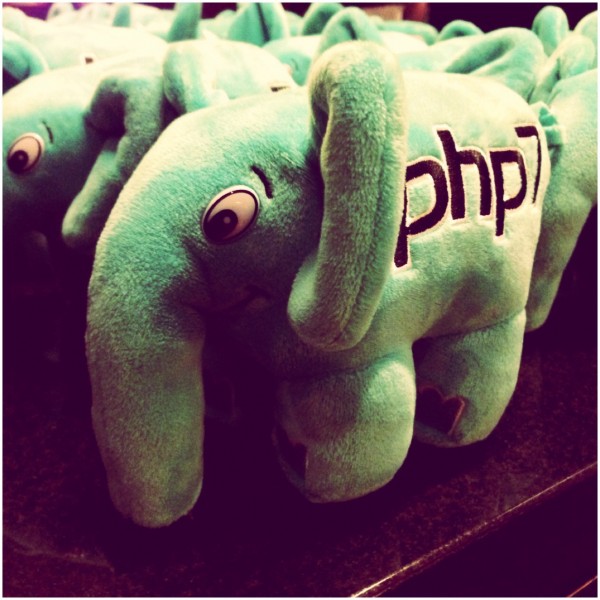If you were a PHP developer, you can state that 2015 was an epic year! Many things occured this year that had small or big effects in your role as PHP developer.
20 Years of PHP
First of all 2015 is the year we can celebrate 20 years of PHP as Rasmus Lerdorf released his first version of PHP/FI on June 8, 1995. Back then PHP was nothing more than a bunch of C classes that allowed Rasmus to build dynamic web applications in an easier way than was possible with CGI driven Perl sites. Little did he know that his contribution would change the world.
Today PHP is responsible for more than 80% of all web sites on the Internet, maybe even a bit more if we were able to look behind firewalls and proxies. Businesses depend heavily on PHP for their main source of income (selling products or services) or have PHP become part of their business intelligence (ERP, CRM, CMS) or even beyond regular computer usage (e.g. license plate recognition, traffic monitoring or even control bridges).
I only got in touch with PHP in 2001, but I’ve seen the technology and the community behind it grow into an awesome ecosystem where there’s a general behaviour of sharing and doing good. I feel myself privileged to be a part of this wonderful community.
Major Version Milestones
Only last month we could already enjoy the release of Magento 2, the major e-commerce platform build on PHP, Drupal 8, the leading CMS platform build ontop of Symfony Framework, and Symfony 3, the leading PHP framework to build robust, dynamic web applications.
It’s not done yet! Members of PHP core have completed and tagged PHP 7.0.0 on December 1, the biggest milestone change since PHP 5 dating back in July 2004. If you want to know what’s new under the hood of this release, I can recommend getting the free e-book “Upgrading to PHP 7” by Davey Shafik.
The years ahead
With these new releases available, and the global trend to connect everything together over the internet (IoT), we will see more API’s being created to streamline all of this. With PHP 7 you get extra power and performance to compete with other technologies.
Improved security tools to encrypt privacy data, hashing of passwords and secure communications between services and devices makes PHP a technology that will provide jobs and opportunities for decades to come. If you’re a student and like adventure, PHP might give you an exciting future!
Get on board and start building the future today!
